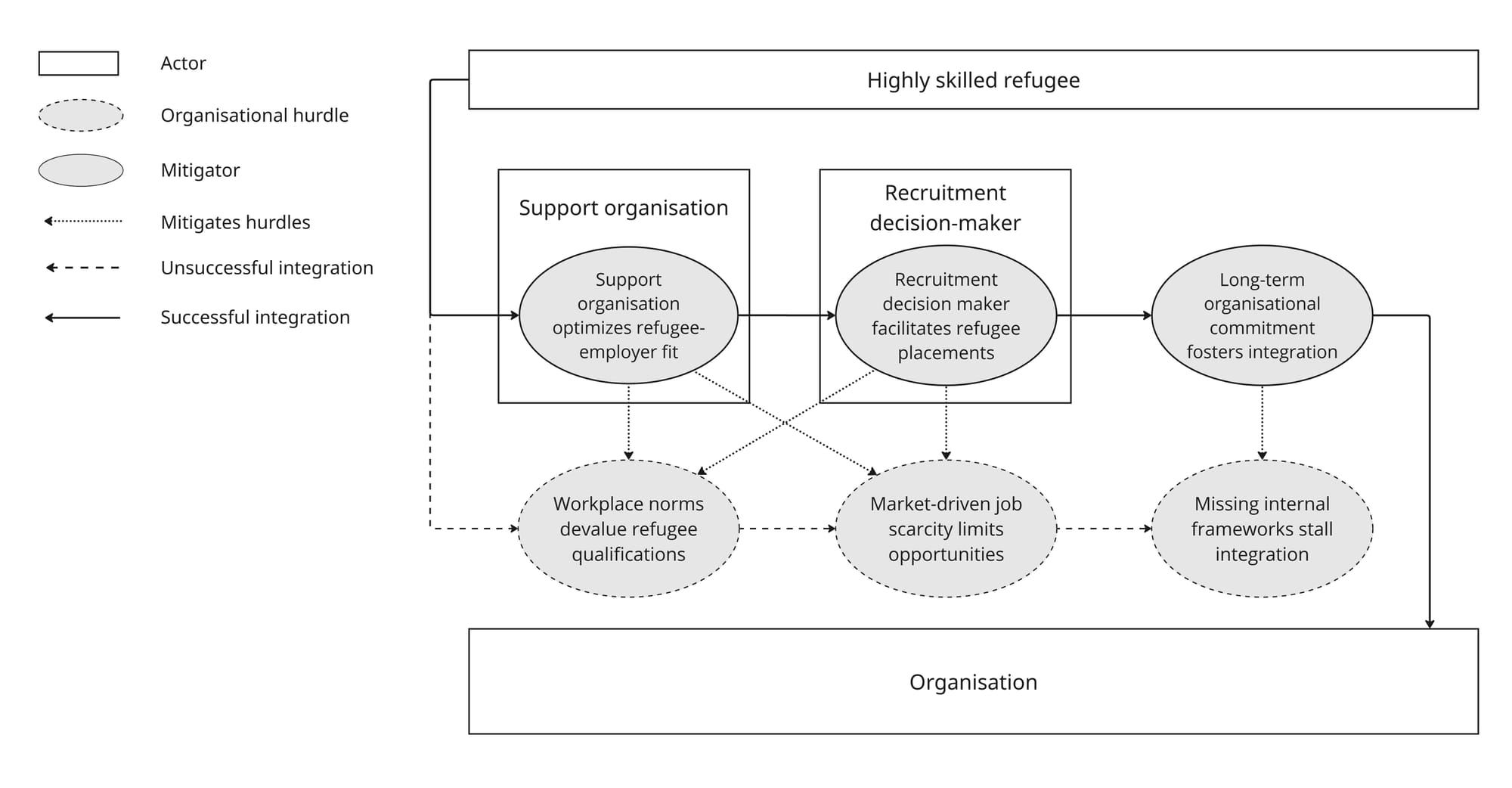Winning the Hurdle Race: How Organisational Actors Mitigate Hurdles to Integrate Refugees in Swiss IT
My Master’s thesis gives insight into the organisational "hurdle race" faced by highly skilled refugees from the Middle East and North Africa (MENA) as they strive to become part of Switzerland’s IT landscape.

Topic
My Master’s thesis gives insight into the organisational "hurdle race" faced by highly skilled refugees from the Middle East and North Africa (MENA) as they strive to become part of Switzerland’s IT landscape. My research builds on the "canvas ceiling" unearthed by Lee et al. (2020), which consists of a systemic barrier inhibiting the integration of refugees. Through in-depth conversations with employers, support organisations, and the refugees themselves, I aim to understand the hurdles facing highly skilled refugees as well as the mitigators that support their integration. These mitigators help highly skilled refugees win the hurdle race within Swiss IT.
Relevance for Practitioners
The integration of highly skilled refugees is crucial for addressing talent shortages in Swiss IT, yet many potential employers lack practical strategies or support frameworks to include this underutilised workforce. By revealing both the obstacles and mitigating practices, my thesis offers actionable insights for HR professionals, talent managers, and organisational leaders on how they can participate in integrating highly skilled refugees, and which factors ensure long-term success.
Results
Three major hurdles were identified that highly skilled refugees need to overcome: a set of workplace norms that devalue their foreign credentials, the impact of the hiring market which limits their access to suitable roles, and the absence of internal frameworks for long-term integration. These hurdles are best addressed when (1) support organisations like Powercoders optimise refugee-employer fit through upskilling of refugees and networking, (2) motivated internal actors within firms champion refugee hiring, and (3) organisations commit to long-term integration strategies and not just one-off placements.
Implications for Practitioners
- Partner with support organisations that preselect and upskill highly skilled refugees.
- Advance topic within the organisation by collaborating with motivated individuals within the company.
- Use internships with clear development plans as structured entry points for highly skilled refugees.
- Build long-term commitments for refugee integration into HR strategy (e.g., pipeline targets or dedicated roles).
Methods
This study employed a qualitative research design, combining ten semi-structured interviews: four with highly skilled refugees, five with recruitment decision makers in various Swiss IT companies, and one with Powercoders, a non-profit support organisation. Thematic analysis was conducted using the Gioia methodology to build a data-driven model of hurdles and mitigators. Participants were selected for diversity in background and industry. Interviews were transcribed, coded, and analysed to determine patterns in the data and distill this in both theoretical and practical insights.
